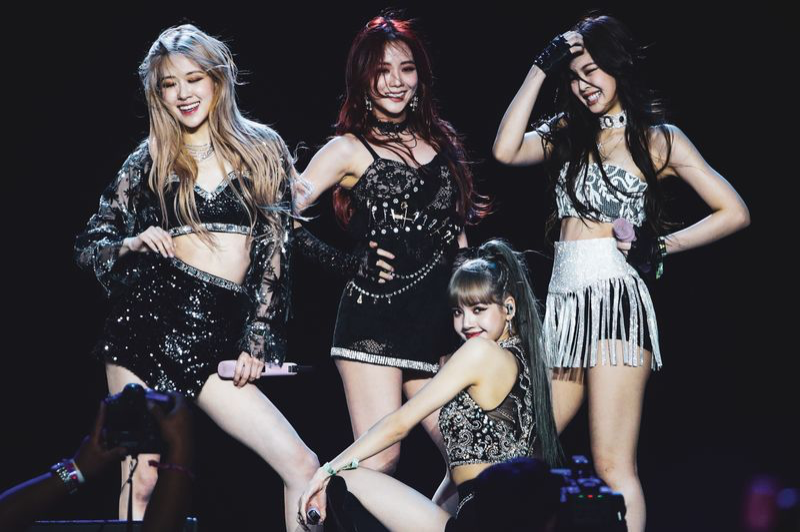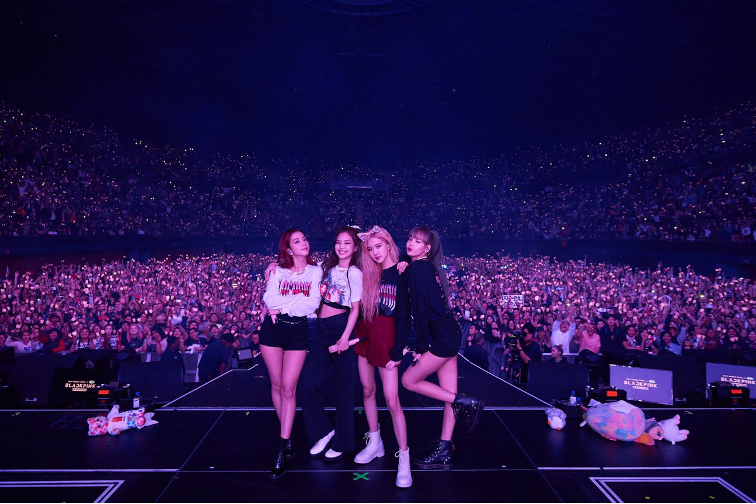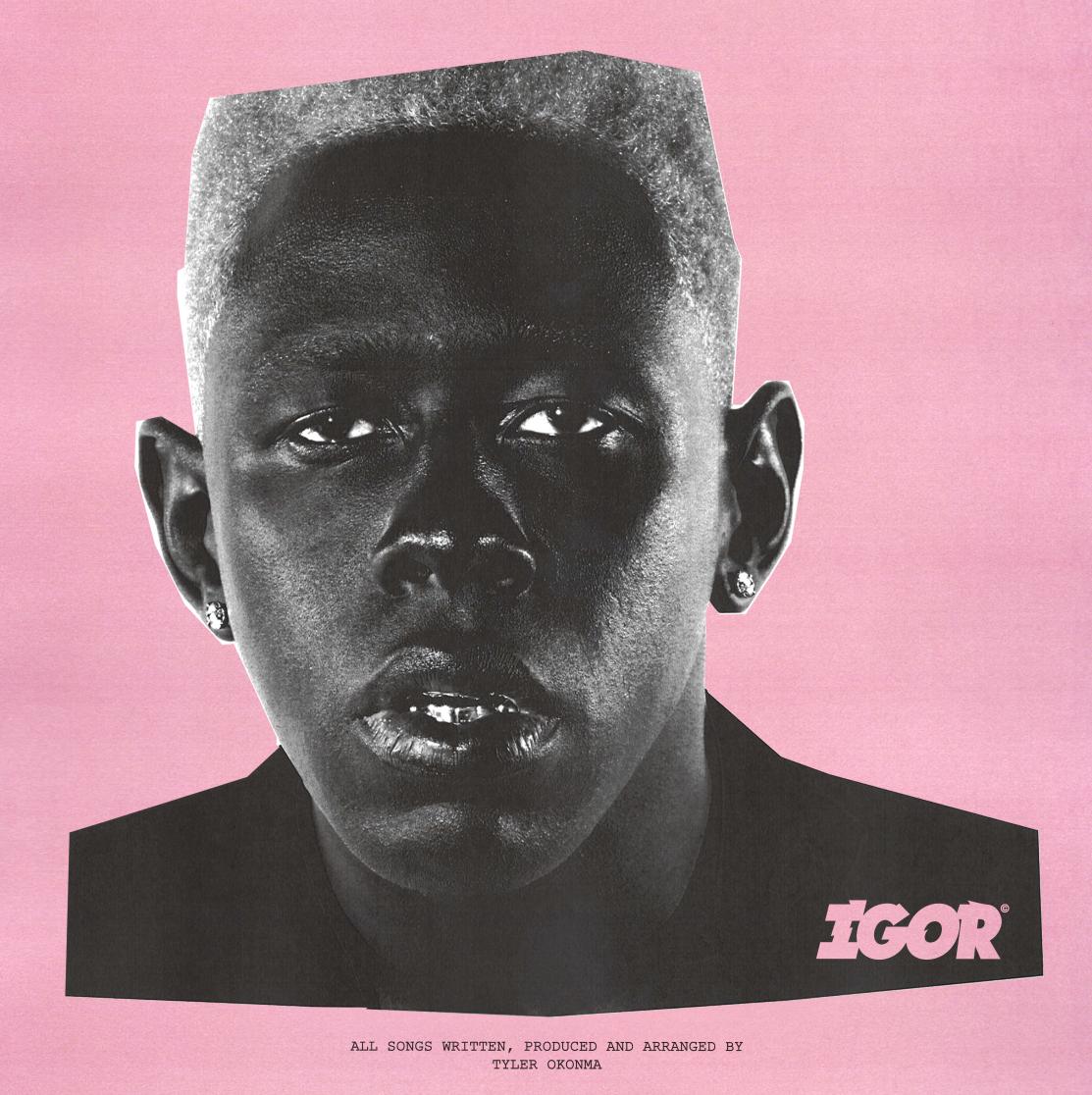By: Heather Bushman
I listened to a lot of music over quarantine. sometimes replaying old favorites but most times diving into new genres and artists. I dug deeper into my rap side with endless spins of Mac Miller and Lil Uzi, I doubled down on alt rock with Wolf Alice’s fantastic 2015 record My Love Is Cool, and I finally got around to listening to ROSALÍA’s revolutionary El Mal Querer in full, just to name a few. It was a great period for expanding my tastes, and I emerged with a much broader musical palette.
I cemented multiple new genres in my repertoire, but the genre that stuck with me the most was K-Pop.
I suppose to call it a genre is something of a misnomer considering how diverse the soundscape is, but nonetheless, the industry as a whole was fascinating to me (plus, the music is genuinely great. Looking at you, eye-rollers.). The way they market and produce should be taught in a business course (in fact, it kind of was), and the multi-medium content structure is brilliant in terms of fan immersion. K-Pop groups keep their fanbases engaged with a steady content schedule, and the biggest names have mastered the merging of quantity and quality.
Well, most of the biggest names. BLACKPINK, arguably the biggest name of them all, is the exception.

(From left to right) Jisoo, Jennie, Lisa, and Rosé on the set of their 2019 smash music video “Kill This Love,” which currently sits at just over 1 billion views on YouTube.
You’d have to have been living under a rock to have never heard of them, but, until this year, their presence in the industry has been elusive, a blink-and-you’ll-miss-it moment with how scarcely they were releasing music. Jisoo, Jennie, Rosé, and Lisa are everywhere and nowhere: taking brand deals with high-end labels like Chanel and Yves Saint Laurent, featuring on tracks with major Western artists like Lady Gaga and Dua Lipa, performing at Coachella (the first Korean girl group to do so), all with a next-to-nothing discography.
BLACKPINK debuted in 2016, and since then, they’ve released a total of 21 original songs: 4 in 2016, 1 in 2017, 4 in 2018, 4 in 2019, and 8 with their first full-length project, aptly titled THE ALBUM, in 2020. On first glance, it’s not a terrible showing for five years, especially considering that the group has always been more focused on performing and promoting than making music, but in comparison to other massive girl groups like TWICE (114) and Red Velvet (95), 21 songs is a disappointing statistic.
TWICE and Red Velvet have one and two years on BLACKPINK, respectively, but even on an equal level, these two groups are blowing BLACKPINK out of the water in terms of content. Where BLACKPINK is currently averaging just over 5 songs a year, TWICE is producing at right about 23, and Red Velvet is close behind with a little under 16.
There’s a video that outlines all of it much better than I can, but basically, BLACKPINK breaks the rules.
In a sense, they should. From debut, BLACKPINK was designated as different. They were slated to be one of the groups that ushered K-Pop into the West, and the output reflects this. Trap and R&B instrumentals back most of their songs, and three members are fluent in English (which appears more often in their lyrics than in the songs of other groups); their brand was built to be appetizing to a Western audience and garner success on a global scale.
Evidently, it’s working.
But the disconnect between the group and the genre from which they emerged is prominent. Though credited as representatives for K-Pop, BLACKPINK does not necessarily represent it in its entirety. They’re a Korean group making pop music, sure, and to assume that every K-Pop artist is confined to a single sound is a severe misstep, but to say that BLACKPINK embodies everything K-Pop stands for, what makes it such a unique sector of music and marketing, is a stretch.
K-Pop as an industry is defined by its flashiness flair, and, above all, frequency: high-budget music videos with bright visuals, fleshed-out concepts, energetic instrumentation, picture-perfect performers, and a constant stream of content. Singles aren’t just singles, they’re comebacks, complete with a new look, new sound, and new aesthetic. Often, they’re accompanied by a mini album or a full album, and successful groups usually make comebacks two to three times a year.
BLACKPINK obviously doesn’t follow that formula. When they do come back, all of the tenants of a typical release are there, but the key word is when, which is not often.
It’s not every day that a group will wait four years after debuting to release their first album, much less get away with it, but the risk seemed to pay off. THE ALBUM recorded the highest first-week sales of any K-Pop girl group in history and peaked at No. 2 on the Billboard 200, and “Ice Cream,” one of the lead singles, debuted at No. 13 on the Billboard Hot 100.
But the success begs the question:
Why?
There are girl groups that are doing it more often and, frankly, doing it better. LOONA’s foray into hyperpop and the intricate lore behind their group give fans something they can really sink their teeth into, DREAMCATCHER’s rock concept is a take rarely, if ever, seen in the industry, and Red Velvet’s discography is one of the most exciting and diverse of any group period. That’s not even mentioning the myriad of other groups putting out genuinely great music and visuals, of which there are plenty.
Yet, it’s BLACKPINK who prevails in the mainstream.

Perhaps it’s the lack of content that keeps them in the conversation. Maybe withholding the material is what generates so much excitement for it. A trip to Twitter is guaranteed to turn up at least one “WHERE IS THE ALBUM???” tweet to the likes of Frank Ocean, Lorde, or Rihanna. If the fervent reception of this year’s releases is any indication (the music video for “How You Like That” held the record for most views in 24 hours with 82 million until BTS broke it three months later), the fleeting presence of BLACKPINK seemed to have the same effect.
The music video for “How You Like That.”
But the difference between BLACKPINK and the artists that have generated similar hype in their various hiatuses is the others have discography to back it up. We hold onto the hope that every appearance from Lorde on social media means the rumored album is coming soon because we’re desperate for another Melodrama, and we hound Rihanna in the comment section for the fabled R9 because ANTI left such a fantastic impression. But with BLACKPINK, the past projects, while perfectly fine, haven’t established a precedent of particularly groundbreaking soundscapes or innovative musicianship.
To be fair, the hype for BLACKPINK was sizable before they even debuted simply because of association. YG Entertainment, their label and one of the biggest companies in South Korea, hadn’t debuted a girl group since the wildly popular 2NE1 seven years earlier, so when it was announced that a new group was in the works, the anticipation was sky high. Plus, the members, Jennie especially, had garnered attention online after YG released a few short performance clips.
The girls were spunky and tenacious, and the concept for the group was significantly darker and edgier than their bubblegum counterparts like TWICE or GFRIEND that dominated the scene in 2016. BLACKPINK represented a fresh concept from a company with a reputation for turning out successful groups, and that was something for people to get excited about.
But, five years and 21 songs later, it’s still a mystery as to what exactly we were waiting for. With all of the potential behind BLACKPINK, even with features from Selena Gomez and Cardi B and credits from Victoria Monet and Ariana Grande, THE ALBUM is a bit of a letdown.
It seems to be mocking us in just in the title. It’s definitive if nothing else, silencing the criticism concerning their lack of content. “You think we need an album?” it asks. “Here it is, THE ALBUM. Happy now?” At just eight songs, THE ALBUM reads more as a lengthier EP or mixtape, but as the project demands the label of “album,” we’re forced to designate it as such.
It’s not a bad showing by any means. Catchy hooks, cool concepts, great vocal and rap work from girls, THE ALBUM truly is BLACKPINK doing what they do best: turning out sticky pop hits with an air of confidence and charisma in tow. Tracks like “How You Like That,” “Pretty Savage,” and “Love To Hate Me” play to their strengths with sassy, bold lyricism and hard-hitting instrumentals, and tracks like “Ice Cream” and the closer, “You Never Know,” switch it up with a lighter approach, the former more flirtatious and fun and the latter more somber and sincere. “Lovesick Girls,” the third single, blends both elements: genuine emotion represented in the subject matter coupled with a pounding, relentless soundscape.
The members, obviously, are top-notch. After 20 years or training between the four of them, that’s to be expected, but the prowess and professionalism still deserves a shoutout. Lisa delivers with all the style and swagger of any MC out there, Jennie goes back and forth between rapping and singing across the project and navigates the dual role with ease, Jisoo is gold in her deep, sultry lower register, and Rosé’s signature light tone shits from floating across the verses to soaring in the choruses, dynamic and full of character.
But as talented as the girls are, and as great as they are on here, the material they had to work with wasn’t exactly stellar. “Lovesick Girls” and “Love To Hate Me,” are the standouts, with colorful uses of vocal layering, varied instrumentation, and strong surges of musicality, but the instrumentals on the whole, hard-hitting as they can be, tend to feel hollow.
“How You Like That” houses a flat synthetic horn intro and percussive effects that sound like they were recorded in a tin can, specifically an ascending rubber band-like line in the chorus. The clunky rounded synth bass in the chorus of “Crazy Over You” is a disappointing outcome after a verse that makes great use of a pipe melody, and the guitar strums in the pre-chorus of “Pretty Savage,” feel out-of-place compared to the track’s trap focus. Electronic melodies in “Ice Cream” and “Pretty Savage” are more annoying than they are additive, and the instrumentals on “Bet You Wanna” sound straight from a Meghan Trainor B-side (which is especially odd considering the Cardi B feature).
The basslines support the tracks nicely for the most part, full and present, and the touches of other genres in indie-esque guitars and Eastern pipes and strings are innovative and interesting, but the missteps are noticeable and take away from the overall quality of the record.
Again, not terrible, actually quite fun, but certainly not fulfilling of the promise that has seemed to follow BLACKPINK since their debut. THE ALBUM is a nice piece of pop, but by no means groundbreaking or revolutionary in the ways that have been insisted.
It’s frustrating, above all else, but not simply because BLACKPINK is successful with a relatively slim discography. On its own, this isn’t a bad thing at all. Why wouldn’t I want musicians to succeed, especially ones whose music I genuinely enjoy (for all of the criticism I just laid on THE ALBUM…I had a good time listening to it)? BLACKPINK’s status as a titan in the industry, head-scratching as it can feel, is honestly inconsequential independent of other factors.
But there are other factors – namely, YG. Shady and scandal-ridden, YG has a reputation of mismanagement and mistreatment toward their artists. Entertainment companies have always housed mistreatment accusations, sometimes merely speculative, but it’s certainly worth noting that this entertainment company in particular is often at the center of these allegations in the industry.
The claims often originate from the terms outlined in artist contracts, so notoriously restrictive in the K-Pop industry that they’re literally known as “slave contracts.” It’s unfair to designate every label as such an oppressive force, and some have publicly broken the stereotype, but the content and promotion tactics for BLACKPINK seem to suggest that YG contracts are living up to the nickname.
In this context of content, quality and quantity, it’s disappointing that this is the standard the company has adopted. Even more disappointing is how profitable it’s proven to be.
The aforementioned video outlines it, but the less BLACKPINK releases, the more their popularity seems to skyrocket. The contradictory nature of this relationship, while working for YG, isn’t fair to the fans or, more importantly, the girls.
Earlier I asked why BLACKPINK is so successful, and truthfully, there are a number of answers: they’re backed by a strong company, they fill a darker niche in K-Pop that was desperately needed at the time of their debut, and their discography, though nothing revolutionary, is a genuinely good display of catchy pop music.
But what really makes BLACKPINK successful is, well, BLACKPINK. The other aspects are what draw people in, but the girls themselves are what make people stay.

Jisoo, Jennie, Lisa, and Rosé are a talented bunch, packed with poise and professionalism but also carrying with them this innate charisma and charm that shows up on every stage. Their authentic selves are more than enough to amass a fanbase, which is why the attempts to manufacture them and their music are so perplexing and, frankly, disheartening.
I’m nothing if not thorough, so in preparation for this piece, I did my research. In fact, this was supposed to be a quick review of THE ALBUM (one that I wasn’t sure I even wanted to write after hearing it. I didn’t have a ton to say) before I looked further into things. Of course, I checked out their recent Netflix documentary, Light Up The Sky, in the process, and that’s what really got me into the subject.
Most music documentaries have an arc: rise, peak, dip, recover. The artist emerges from obscurity, rides the high of newfound fame, experiences the inevitable pitfalls, then comes back stronger and healthier than where they started. Light Up The Sky follows the format, but when I finished, I didn’t get that closure, that sense that everything was going to be ok.
Instead, I felt empty.
What was supposed to be an intimate look at the four girls in one of the biggest groups in the world, stripped of any pretenses, only felt produced, plastic. Within the first ten minutes, the girls are outlined with characteristics that are supposed to stick with us for the duration of the documentary: Jisoo is protective and caring, Jennie is shy and kind, Rosé is bubbly and sweet, and Lisa is confident and determined. Each member’s origin story is carefully curated to create the image of a small girl with big dreams who worked hard, stood out from the crowd, found a family in her group, discovered out fame isn’t everything it seems, and ultimately came out the other side a more mature and developed person.
It works, to a degree, and there are some endearing clips of the members interacting with each other and their fans that feel truly genuine, but these are offset by quiet moments of darkness that were nothing short of jarring.
They seemed dodgy when discussing their trainee days, a notoriously rigorous period of performance training for any emerging idol that can last years (for Jennie, it was six, five for Jisoo and Lisa, and four for Rosé). “It wasn’t a very happy vibe,” Rosé said, adding anecdotes about how hard it was to be told point-blank that everything about your performance is wrong.
The part where they delve into their two-year world tour was probably the most difficult to watch, the girls gradually getting to points of physical and mental exhaustion through the montage. Some lines hit especially hard, like when Rosé described feeling “empty” when returning to the hotel after a show on tour. “I didn’t feel like I had a personal life,” she continued.
All of it was supposed to be emotional, but even when they finally reached the Coachella performance, the recovery part of the arc where they rediscovered their love of performing after the demands of tour started to take their toll, there was a certain air of reservation.. It felt too clean, the girls thanking the fans and promising “this is just the beginning,” before a cute scene with them in a restaurant talking about the future. It’s similar to their discography in this way: after all of the setup, the payoff feels flat.
K-Pop has always been a genre that leans more toward performances and appearances than the music itself, but even in an industry practically known for pushing its artists with a loaded output schedule, BLACKPINK stands out, and not in a good way.
The lack of content is one thing, but the fact that they’re still performing at the same rate as other groups with quadruple the discography is concerning. How they toured with 13 songs is beyond me, but they did it, and the exhaustion at the end of it was evident.
I won’t sit here and pretend that the music industry isn’t exactly that – an industry. Companies do what they can to make money, and that’s not an evil endeavor at all: it’s a business, a livelihood. Even the most personal artists are looking to turn a profit and by all means, they should.
But as a fan of BLACKPINK, as someone who genuinely connects with the members, I feel for them. In the push for profit, they’ve emerged completely drained. They’re tired, and at times, they’re stifled. It’s a shame to watch their natural presence packaged, their genuine spirit sculpted to fit the desired image. That’s not to say that they appear robotic or controlled (their personalities are certainly present), but it feels like they’re holding back.
More importantly, it seems like they’re not getting to do what it is they signed up to do: make music.
This is no truer than in Rosé, who practically bleeds music. Her introduction scene comes to mind, cross-legged on the floor of an empty practice studio in the middle of the night, guitar in hand. She goes on to talk about how music just makes sense to her, even reminiscing on the trainee days fondly because “back then, we were surrounded by music all the time.”
The wistfulness and wonder in her voice is apparent here, but it drops immediately when she shifts to talking about the present. “These days we’ve got a lot of work, so I actually have to make time for this,” she says.

Work means brand deals, tour, and other appearances. Work, apparently, doesn’t mean music, and to watch someone as passionate about making music as Rosé be stripped of that experience is heartbreaking.
What’s worse is that she has the music right in her back pocket. Five minutes of the documentary are dedicated to Rosé in the studio working on solo projects, freestyling melodies over an original chord progression or discussing her deeply personal lyrics.
The cruel irony of the clips is that these are projects that had been promised to fans by the company since early last year (and again in early June of this year). In fact, all of the girls were supposed to release solo projects, but so far, it’s only been Jennie with the single “SOLO” (again, on-the-nose). Even she’s been allegedly shortchanged, though, her book full of song lyrics rumored to have mysteriously disappeared.
Again, this is the industry, this is how you’re generating revenue – I understand that. As an individual with a basic sense of economics (and someone who’s trying to make a career out of being creative) I respect it, but as a listener and lover of music, I can’t help but feel disenchanted. The monetization of music, one of the most personal mediums of communication in existence, will always hurt me in some sense. The extent to which BLACKPINK takes it, especially at the expense of a group of girls so enthralled with the process, is even more painful.
There’s a certain trust that comes with the artist-listener relationship, and when a third party interferes with the relationship, the trust falters. In the case of BLACKPINK, our trust lies with the girls, the ones performing in front of us, but the presence of YG Entertainment as this omnipotent entity of power and control over the direction of the group looms over that relationship. It leaves a giant asterisk by everything the group releases, one that calls into question the credibility of the content. Is it a reflection of the musical ability and ambitions of the group, or is it the product of an outside presence with the safest bet for mass appeal?
Deferring to an artist to write and produce for themselves over professional songwriters and producers is a risky endeavor. In relying on trained lyricists and sound engineers, it’s a safe bet that you’re getting decent content, but in projects straight from performers, quality isn’t a guarantee simply because those aren’t their full-time jobs. Distancing the girls from the production process is what protects the revenue, but in a field where listeners are looking to personally connect with the artist through the content they release, the strategy strains the relationship.
This leaves fans at a crossroads. They want to support BLACKPINK, which means streaming and buying merch and watching clips, but a) they’re endorsing the barriers between the girls and their work in doing so and b) the revenue from those activities goes to YG as much as it does the girls (if not more). In the effort to support the girls through the mismanagement, fans have communicated that they’re in favor of the way YG runs the group. Money talks, and when it says current tactics work, there’s no incentive for the company to make a change.
It’s a paradox, which can really be said about the very essence of BLACKPINK. They’re a music group with little music, overworked while still managing to underproduce. They’re authentic, but artificially so, personable enough on their own to draw fans but produced enough to cause concern. They’re successful, but squandered, profiting plenty but dripping with potential that’s yet to be fully realized. They’re doing the most, but not enough at the same time: they’ve reached a peak that no other girl group in their industry has touched, but in reality, they could be doing so much more.
In the end, BLACKPINK will stay successful because they’re BLACKPINK. They’ve spoken their iconic status into existence, and though not necessarily delivering on it, the mythos surrounding them is strong enough to maintain that level of stardom, their reputation solidified enough to remain intact. What we’re watching unfold is marketing and distribution at its finest but most unflattering: a company profits off of the minimal content produced by a deprived group of girls and purchased by a disgruntled fanbase. Nonetheless, the bare minimum has proven beneficial to the company, and as long as that continues, it’s hard to see BLACKPINK’s current strategy for success ever stopping.
SOFLOSOUND.com is your one stop shop for a music fan’s music reviews, profiles, and essays. By the youth, for the youth, and allied with all oldheads, everywhere. Leave a comment below on what you want to see next!



